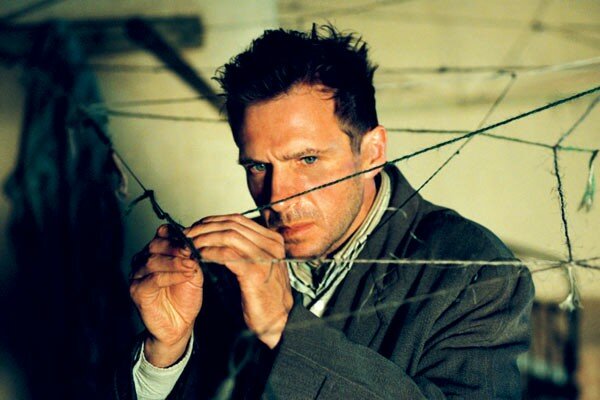
After several years in psychiatric confinement, a young man known as Spider is transferred to a halfway house in the eastern suburbs of London. Just a few streets away is where, as a child, he experienced the trauma that shattered his life. He was not yet twelve when his father killed his mother and replaced her with a prostitute he had fallen in love with. Back at the scene of the crime, Spider gradually delves into his memories, embarking on a strange investigation.
*Spider* stands out, along with *Dead Zone*, as one of Cronenberg's few overtly cerebral films, while most of his work leans towards the organic (even the brilliant *Dead Ringers* portrayed twin brothers as a single, dual-headed body). Yet, the director’s enduring fascination remains consistent: mutation, distortion, or transformation. When it isn’t the body undergoing change, it’s the mind—in this case, psychosis. Where does clarity end, and where does madness begin? In *Lost Highway*, this boundary lay in a prison cell; here, it’s in the family unit. Both films share the approach of depicting madness from within rather than outside perspectives (unlike, say, *Fight Club*), immersing the audience in the protagonist’s mind. Spider’s brain is a true puzzle to piece together, an investigation into fragmented memories where missing pieces must be found. The film’s unsettling power comes from this mental journey, shared with Spider (played effectively by Ralph Fiennes), as we experience his gradual disintegration within a bleak, gloomy aesthetic (I would love to see a Kafka’s *The Metamorphosis* adaptation with this kind of cinematography, a project once considered by Lynch).
These subtle transformations and distortions happen almost imperceptibly but occur right before our eyes, altering Spider’s reality. It’s a beautifully crafted film with deceptively understated yet deeply disquieting direction, standing apart from more showy portrayals of mental psychosis. Solidly earns a rating of 5 to 5.5/6.